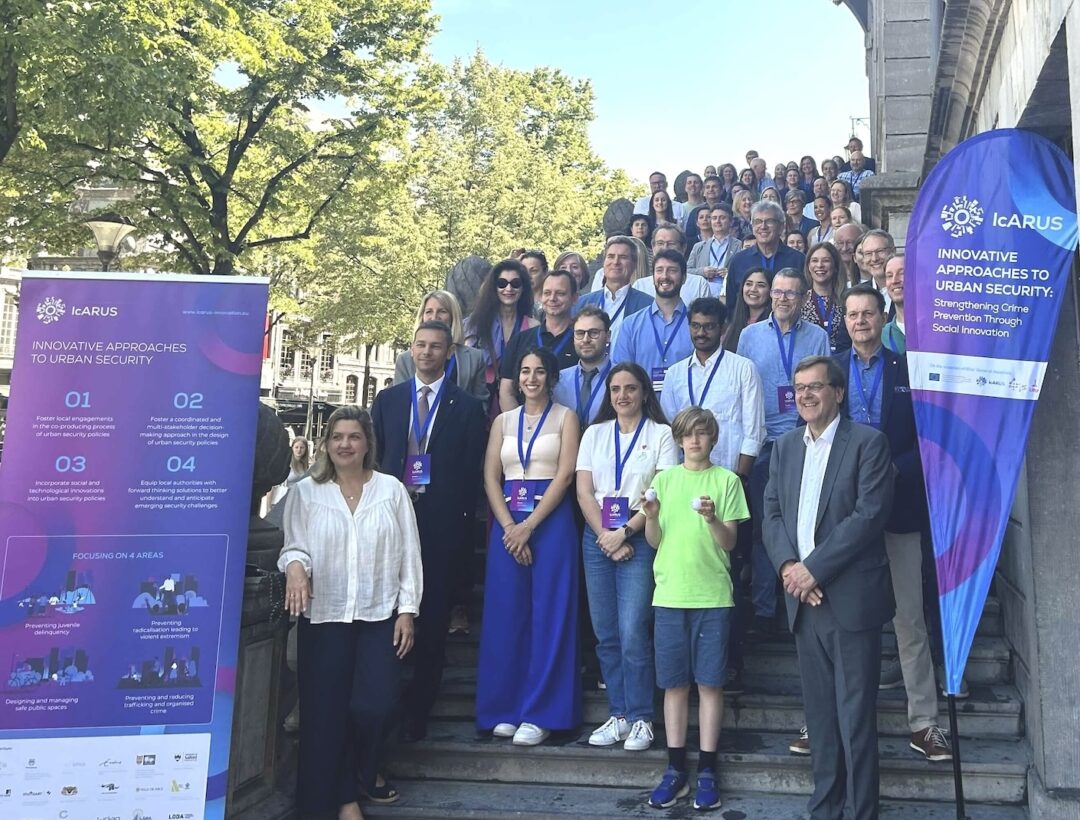Brussels, Belgium, March 2018 — How to better protect European cities’ public spaces from terrorist threats? This was the central question of the “EU mayors’ conference – Building urban defences against terrorism” organised by the European Commission and the Committee of the Regions in Brussels, on 8 March.
Efus was represented by Willy Demeyer, Efus President and Mayor of Liege, who spoke about the Forum’s activities in the field of the prevention of radicalisation, as well as mayors or delegates of the cities of Barcelona, Berlin, Liege, Lille, Lyon, Malaga, Malmö, Marseille and Nice, and Elizabeth Johnston, Efus Executive Director. Many other cities were also represented, notably Hamburg, London, New York and Stockholm, to name a few.
Learning from past attacks to improve protection
EU representatives, such as Commissioner for the Security of the Union Sir Julian King, Commissioner for Migration, Home Affairs and Citizenship Dimitris Avramopoulos, Commissioner for Regional Policy Corina Creţu and the President of the Committee of the Regions Karl-Heinz Lambertz, recalled that the recent attacks against European cities targeted open public spaces. They stressed the “active and crucial role” that local authorities can play “in the protection of citizens” and “the need for cooperation at all levels of governance: local, regional, national and EU-wide” against the “scourge” of terrorism.
The important role of networks such as Efus
In a joint statement released at the end of the conference, the Commission and the Committee of the Regions declared that “the prevention of radicalisation in our cities is an issue of utmost urgency, and requires a holistic approach based on all relevant policies, including in the field of education and social inclusion, with the aim of increasing prevention and resilience against radicalisation and ultimately to prevent terrorist attacks from materialising.”
The statement mentions explicitly Efus for its role as an exchange network: “Cities, practitioners and other local stakeholders need to be supported in their efforts to prevent and counter all forms of radicalisation. Information exchange, exchanges of good practices, the collection of data and training can draw on existing fora such as the Radicalisation Awareness Network, in close coordination with other networks and initiatives such as Efus, the Alliance of European Cities against violent extremism.”
For his part, the Mayor of Nice, Christian Estrosi, stressed the pertinence and the role of cities in the fight against terrorism and cited the recent “Declaration of Nice” adopted at the end of the Euro-Mediterranean conference of cities on the prevention of radicalisation, co-organised by the Euromed network of cities, the University of Toulouse Jean Jaurès and the University of Nice Sophia Antipolis.
An Action Plan and €118.5 million in targeted funding
The European Commission launched in October 2017 an Action Plan to “step up the exchange of best practice, issue guidance material to Member States, and foster cooperation between local actors and the private sector.” Targeted funding for a total of €118.5 million will be available in 2018 to protect public spaces, “be it in developing urban infrastructure to secure open public spaces, raising public awareness, or investing in security research.”
Security and social cohesion challenges
European mayors stressed the need to secure public spaces in the framework of their public policies and the impact this can have on the cultural, economic and social life. Many festivals, fairs and other cultural events have been cancelled for lack of appropriate security funding. Indeed, securing public spaces entails a significant added cost for municipal finances.
Anticipating new threats
Representing New York City, a delegate from the New York Police Department (NYPD) highlighted the importance of prospective to better protect a city: it is not only important to take measures to prevent attacks in the places that have previously been targeted but also to predict and prevent new forms of attack in other emblematic public places.
Building more inclusive cities with a view to the long term
Karl-Heinz Lambertz, President of the Committee of the Regions, stressed the need to fight against discrimination and build more inclusive cities. Strengthening citizens’ feeling of belonging to their city and civic values will allow to not only counter violent radicalisation processes but also prevent new threats.
This is indeed Efus’ conviction. Hence the Forum supports cities in securing physically their public spaces, but also helps them prevent violent radicalisation and discriminatory violence and improve relationships between citiens and their institutions. It is through a global and sustainable response that we will build safer cities, where all citizens have their place.
More information:



